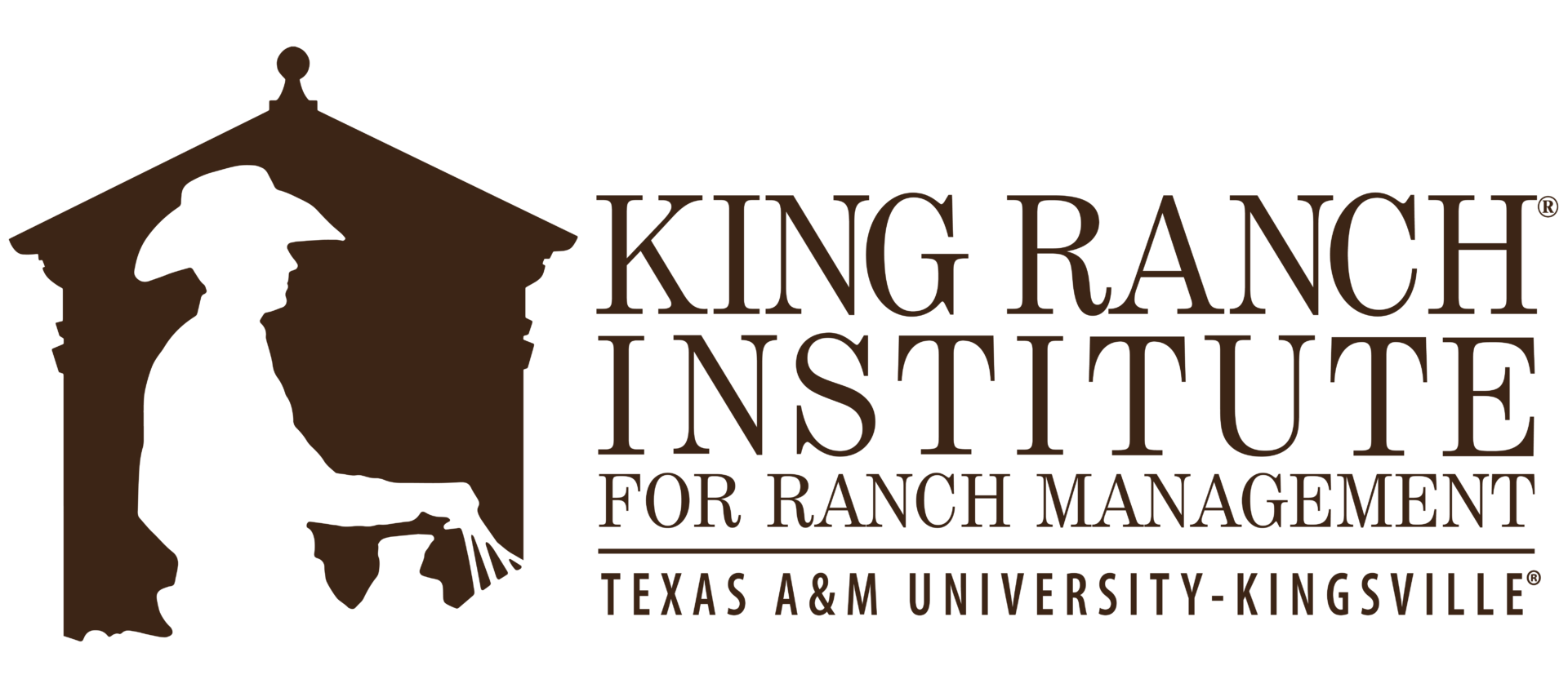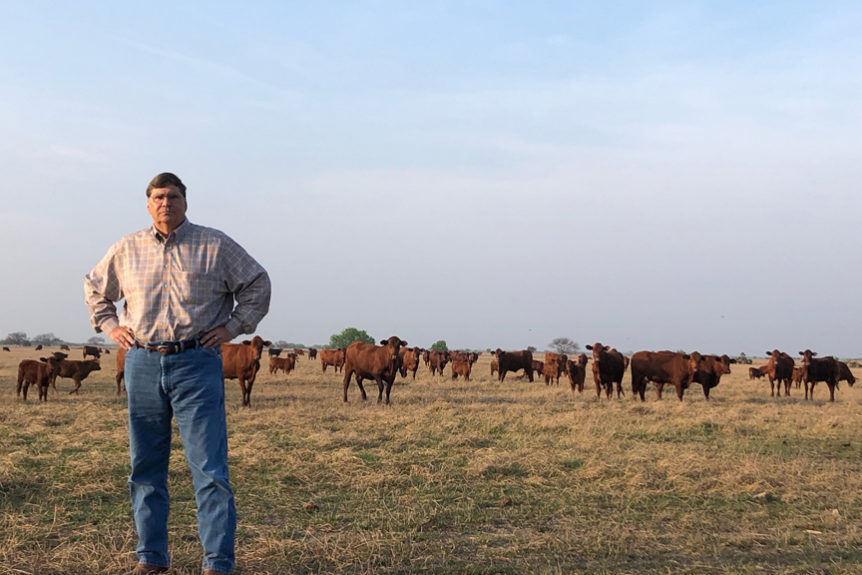A passion for ranching and proficiency in business management are the hallmarks of the storied career of Dave DeLaney. The retiring Vice President and General Manager of Ranching and Wildlife Operations for King Ranch, Inc. reflects on his journey from a Virginia upbringing to iconic Texas experiences.
View and download the Spring 2021 Newsletter here
By Kindra Gordon
Over the past four decades, Dave DeLaney has accumulated a resume – and reputation – as one of the cattle industry’s most visionary thought leaders. With general manager roles at two of Texas’s largest institutions – King Ranch and Friona Industries – as well as an early history assisting with management at several iconic ranches in the Texas Panhandle, DeLaney has applied his business acumen and ranch stewardship principles on a grand scale across hundreds of thousands of rangeland acres and millions of cattle.
As DeLaney transitions toward retirement in 2021, he looks back on his career and notes, “It was high stress and high challenge, and I loved it. I thrived on that.” The Virginia native admits it’s a career even he could not have predicted for himself.
Boots on the Ground
While growing up in Richmond, VA, in the 60’s and 70’s, one might have presumed DeLaney was destined to be a banker – following the career path his father and several aunts and uncles successfully pursued. But young DeLaney gravitated to a great-uncle who was a veterinarian, and through their time spent together, DeLaney fell in love with the business. He recalls thinking, “I can wear boots and jeans and make a decent living.”
Thus, he enrolled in college as a pre-med major and English minor, and says, “My intention was to become a veterinarian.” In that pursuit, graduate school brought DeLaney to Texas and introduced him to the large, sweeping ranches. It was then DeLaney had an epiphany, recognizing these ranches could hire their own veterinarian and other manager roles.
DeLaney’s passion for nature, the outdoors, and ranching remained, but his plans began to shift. After completing a master’s in ruminant nutrition at Texas A&M University, he worked for a time at the 49 Ranch at Gale, TX, and conducted research as part of a PhD pursuit at the USDA Research Center at Bushland, TX. Then in 1983, he was hired with Corsino Cattle Company of Amarillo, TX, and spent the next nine years managing or assisting in the operations of several historic ranches in the Texas Panhandle, including the XL, JA, RO, Turkey Track and others. Of these “boots-on-the ground” experiences, DeLaney says, “I loved it,” and today, he acknowledges they were foundational in setting the tone for his future.
One of his first Texas ranch jobs taught him humility. DeLaney tells, “I was riding lead and let a few calves get away.” When the other cowboy razzed DeLaney saying, ‘I thought you were good,’ DeLaney aptly denied the “good” claim and instead replied with, “I said I had experience.”
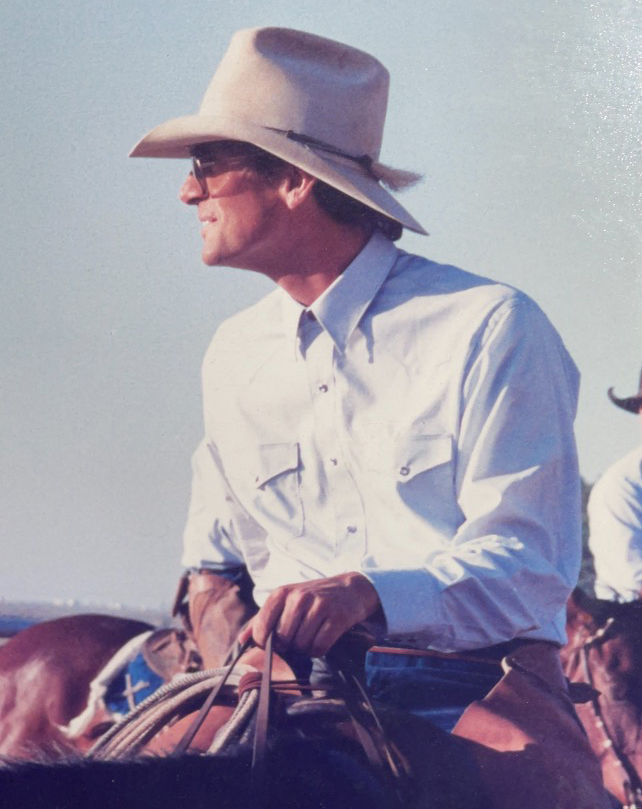
That humble approach, with a willingness to do whatever ranch job was at hand, amassed DeLaney solid credentials as his career progressed. “I’ve viewed the industry from the role of a hired hand all the way to executive management,” DeLaney notes. As a result, he says, “I’ve carried with me the perspective of what’s feasible and practical as opposed to unrealistic.”
Embracing Change
In May 1992, a new challenge came knocking for DeLaney – a role as operations manager of Friona Industries, L.P., Feedyard division, and by August 1996 he was promoted to General Manager of both the Feedyard Division and Friona Industries Cattle Company. With five commercial feedyards having a one-time capacity of 250,000 head of cattle, 160 employees, as well as oversight of all outside and pastured cattle inventories, DeLaney was tasked with not only managing, but also restructuring the struggling company.
He rose to the occasion implementing a “systems approach” that was novel to the cattle industry at that time and brought profitability back to the company. DeLaney helped the CEO and CFO guide the Friona Feedyard Division management team to implement an accounting benchmark system that standardized reporting within the company and allowed comparisons of cattle performance, expenses, margins, and income over the multi-location operation. He also developed a sensitivity analysis system utilized across the company and participated in development of strategic alliances and a beef retail valuation partnership.
DeLaney says the key lesson he learned during his time with Friona Industries was the need to have a focused vision [or mission statement] with actionable goals top-of-mind. He says, “A vision without a plan is dreaming…You can’t accomplish things without good people who share the vision to work as a team toward a common goal.”
With that, he adds, “Culture is important. Growth for the sake of growth [profits] doesn’t work…you have to determine if growth fits the culture.”
Additionally, DeLaney credits his management success to the ability to understand the circle of control. He explains, “With so many moving parts, there is no need to focus on the things you can’t change and don’t control. Instead, you need to get a grip around what you can.
Regarding cattle production and ranching, he adds, “We control nothing…not the weather, the markets or prices. So, to do this job, you have to love it – and focus on controlling costs and adding value to production.”
Bringing it all Together
It was that “love of the job” that brought DeLaney to King Ranch, Inc. in January 2004. “My real passion is for range and ranch management. It’s a labor of love,” says DeLaney of the past sixteen years he’s spent at the helm of the 825,000-acre, privately owned ranch.
“It’s so diverse, you never knew what you would deal with each day,” notes DeLaney, who points to King Ranch’s large cattle herds, wildlife management and hunting programs, and conservation efforts toward brush management as well as the 35 threatened and endangered species found on the ranch. “We have the same stewardship view to protect and preserve native species [plants and wildlife] as we do to raise livestock,” explains DeLaney.
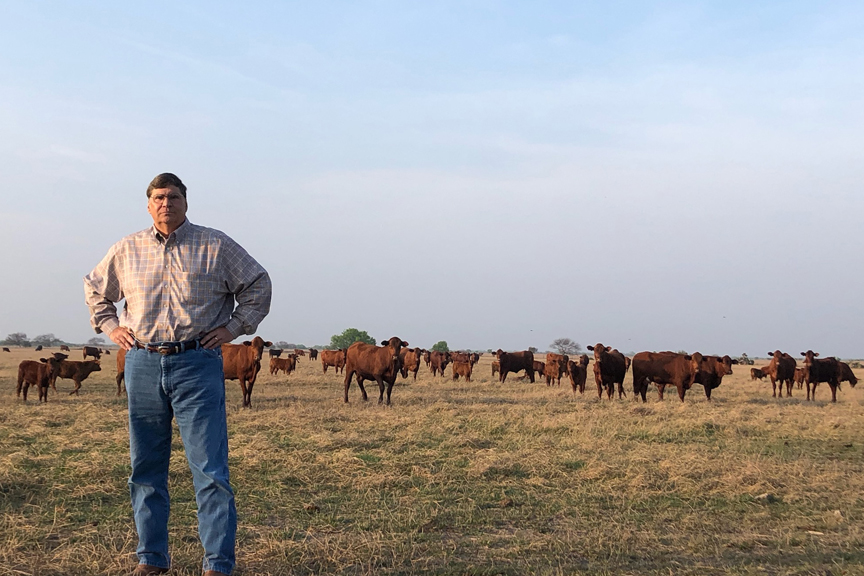
To that end, DeLaney shares that the “systems approach” he employed at Friona Industries has also been instrumental to the success, profitability, and stewardship during his tenure as Vice President and General Manager of Ranching and Wildlife Operations for King Ranch, Inc. DeLaney’s tactics have included benchmarks and analyzing as many as 80 monthly management reports alongside the ranch’s five area managers. He admits, “People accuse me of being too analytical,” but adds, “You can’t improve what you can’t measure.”
Of modern-day ranching, he adds, “Animal husbandry is only part of the equation. You have to understand accounting, legalities, range management, wildlife management…And at the core you need to understand that maximizing production and optimizing production are two different things. There often has to be compromise and sacrifice to protect that other enterprise.”
That’s the philosophy DeLaney has applied with the ranch and wildlife management team at King Ranch, Inc. Rather than maximize any one entity, the focus is on optimizing the different areas while still adding value to the balance sheet and considering stewardship for the next generation, which aligns with the King Ranch Inc.’s overall mission statement.
In the end, DeLaney’s tenacity and team approach have helped produce a track record of ranch profitability every year during his King Ranch tenure. Of this he notes, “I am proud that we manage the cattle operation profitably – especially in the drought years – and do it in a way that is friendly to the environment. In every operation I have participated in, my goal has always been to leave it better than I found it.”
Passing the Baton
Today, as the cattle industry embarks on a new decade, it’s the first time in 40 years that DeLaney is loosening the reins a bit; he’s semi-retired while consulting part-time for the King Ranch, Inc. But he knows the industry he’s been so dedicated to is in good hands.
He points to the King Ranch® Institute for Ranch Management (KRIRM), where he has served on the management council since the program’s inception in 2003. DeLaney credits the program not only for training the next generation of ranch leaders, but also for providing extended learning opportunities within the industry through lectureships, symposiums and research. He notes, “The Institute is producing people who make a difference not only on a singular ranch property, but also a tremendous difference in the industry as a whole. With continued fragmentation of property and habitat, having people who can manage large properties, and possibly even expand them, is key for the future.”
While DeLaney recognizes the ranching industry will face challenges ahead, he emphasizes, “I’ve always believed the more challenges, the more opportunities,” and adds, “The good news is beef is the best tasting product out there; there’s no higher quality protein.”
That said, DeLaney encourages ranch managers to stay informed, aware and open minded. He notes, “I would’ve never foreseen the changes we’ve experienced in the last 10 to 20 years. But as an industry, if we embrace changes, we’ll be OK. The future is going to look different. Embrace change, expect the unexpected, be prepared.”
Of his King Ranch, Inc. successor Heath Grigg, DeLaney says, “He’s a great people person with experience in all aspects of the ranching and wildlife segments of King Ranch. He understands wildlife, range, livestock (cattle and horses) as well as the culture in South Texas. With his leadership, the Ranching and Wildlife Operations for King Ranch, Inc. will continue to grow, prosper and be innovative leaders within the ranching industry.”
On a final note, DeLaney emphasizes the importance in mentoring future leaders and succession planning – and recognizes he has come full circle. He concludes, “I have been fortunate to work for gentlemen such as Jay O’Brien, James Herring, Jack Hunt, and Robert Underbrink who were all excellent agricultural businessmen and strategic thinkers. I would be remiss if I didn’t extend them my thanks. It has also been my privilege to be part of KRIRM and helping in some small way to develop future leaders for our industry.”
As Dave DeLaney transitions into retirement, he is looking forward to spending more time with his wife Carrie and their four adult sons and their families – including three grandchildren. As a survivor of two major health issues, including cancer, DeLaney says faith, family and health are his priorities. He anticipates filling future free-time with fly-fishing, travel, and possibly guest lecturing or teaching – as well as time at the grill. He says, “I love to BBQ and smoke beef.”
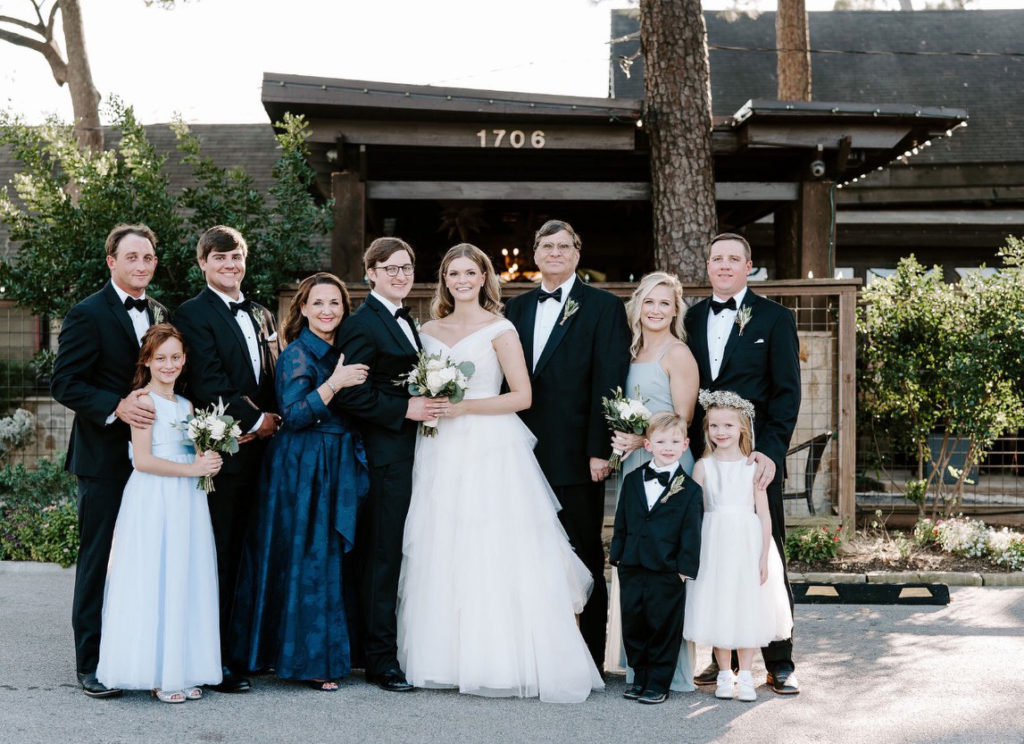
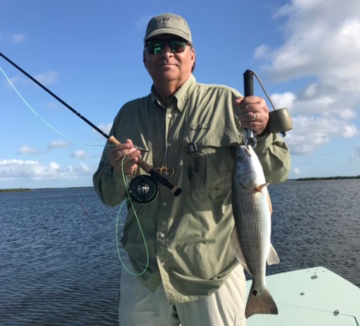
More From Dave DeLaney
What advice does Dave DeLaney offer to those in the trenches – or just starting out – in the ranching industry?
- “Be a lifelong learner. Those who are not a student of history are bound to repeat it,” he says. For DeLaney, much of his learning has been fostered from being a voracious reader. At work, he admits his desk is littered with trade publications offering ideas and insights. At home, he enjoys reading various themes, but especially historical biographies. He shares, “Getting inside the minds of people who were involved in incredible changes has been a window that has shown me a lot about leadership.” Currently, DeLaney is captivated by the histories of Native Americans, and shares, “What fascinates me about Indian Chiefs is they were incredible intellectual leaders and achieved that leadership without any formal education.”
- Regarding ag’s relationship with consumers, he advises the beef industry to “do a better job of selling the job we do…we need to focus on societal benefits such as carbon sequestration, providing habitat and managing watersheds.” He adds, “New consumers want to know where food is coming from and if it is produced in way that is socially responsible. Animal welfare and stewardship are becoming as important as the product itself.”
- In all industry endeavors, he encourages ranch managers, “Take the long-term view in what you do, or you won’t be sustainable.” He notes that active succession planning needs to be at the forefront of that long-term approach.
- Speaking to the next generation, he advises, “When you take a job, consider if the culture, mission statement and goals fit your values? When I took jobs, I looked for opportunities to work with excellent mentors who would allow me the opportunity to grow and advance versus just weighing the job based on salary. I built stepping-stones along the way.”
- He notes that success isn’t singular. Rather, he says, “My success was because of the talents of the good people around me; we took a team approach.”
- DeLaney encourages industry involvement, and shares, “The industry is shaped by those who show up.” This he knows from experience. In addition to his employment roles, DeLaney has been a longtime leader at the state and national level serving on numerous Boards of Directors and committees representing conservation, wildlife, animal health and cattle interests, including the Texas Cattle Feeders Association (TCFA), the Texas Wildlife Association, Texas Parks & Wildlife Department, the National Cattleman’s Beef Association (NCBA), the Texas Southwestern Cattle Raisers Association, and the Texas Animal Health Commission.
View and download the Spring 2021 Newsletter here.
